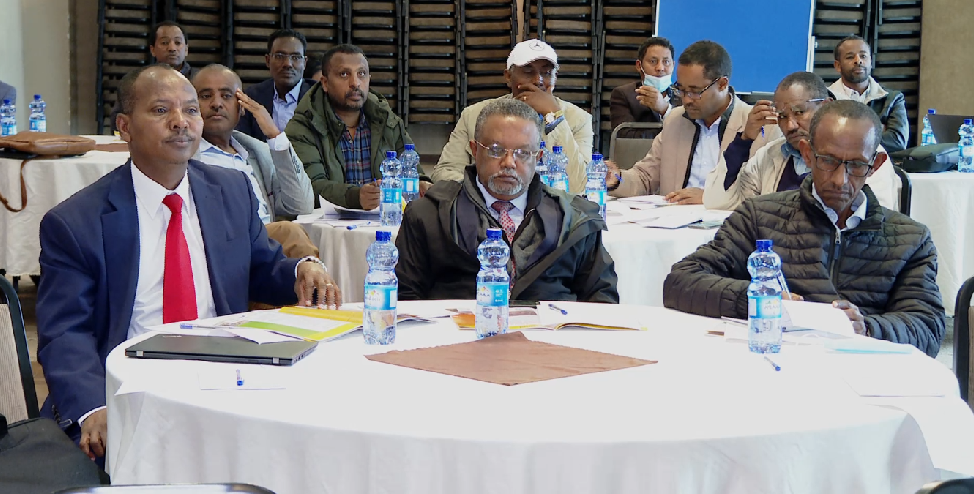Striking Balance btw Increasing Food Production, Ecosystem Conservation Crucial: Study - ENA English
Striking Balance btw Increasing Food Production, Ecosystem Conservation Crucial: Study

July 12, 2022 (ENA) The Policy Studies Institute of Ethiopia has urged policy makers to strike a balance between increasing food production to meet rising food demand and reduce poverty while meeting objectives of ecosystem conservation.
In a half-day workshop held today, Policy Studies Institute presented three papers on understanding gender differences on the choices of portfolio of climate-smart agricultural practices in Sub-Saharan Africa, consumption risk and development resilience in Ethiopia, and ' understanding the impact of farmland expansion on rural household's livelihood.
According to the study presented with the title ''Understanding the Impact of Farmland Expansion on Rural Household's Livelihood: Empirical Evidence from Ethiopia", Ethiopia’s population is expected to surpass 200 million by the end of 2049 and that will result in an increasing demand for food and conversion of substantial areas of forest into agricultural land, unless alternative measures are in place.
The study conducted by the institute stated that a rapidly growing population, widespread poverty, low agricultural productivity and lack of alternative income sources often push rural people in the country to expand agricultural land into forested areas and are leading to loss of ecosystem losses.
Over the last two decades, more land has been converted from forest and woodland vegetation to produce stable crops.
Between 2001 and 2019 alone Ethiopia lost 410,000 hectares of tree cover, and land under cereal production has increased from 7.2 million hectares in 2000 to 10.2 million hectares in 2016.
The demand of agricultural commodities is projected to increase inevitably by 70 to 100 percent by the year 2050, the study added.
It urged the need for policy makers to balance the trade-offs between competing objectives of food security and limiting bio-diversity loss in the country with taking alternative options.
The alternative options include addressing the low productivity of the agricultural sector through increased support for research, technological development, extension services and capacity building to sustainably increase agricultural productivity.
Increasing local perceptions on the importance of nature, improving natural resource governance and resource use efficiency, sustainable farming practices such as improved water management, conservation agriculture and adoption of agro-forestry practices will be crucial to halting and reversing environmental degradation.
The study further suggested that agricultural intensification through the adoption of multiple yield enhancing and resource conserving technologies and market oriented production may contribute to land sparing and avoid deforestation.